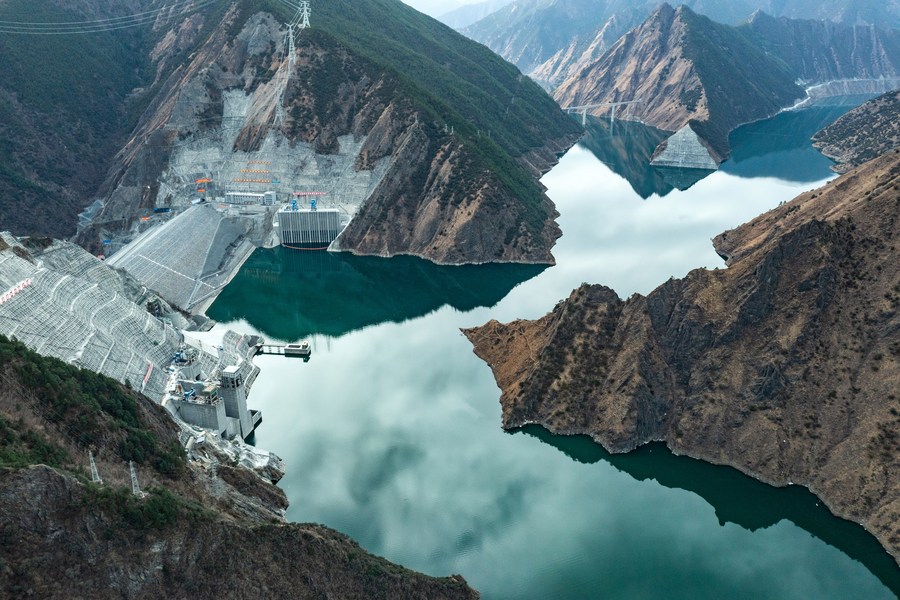UNGC to launch Climate Ambition Accelerator program in China

Aerial photo taken on March 17, 2022 shows Lianghekou hydropower plant on the Yalong River in Tibetan Autonomous Prefecture of Garze, southwest China's Sichuan Province. (Xinhua/Shen Bohan)
The United Nation Global Compact (UNGC), the largest business sustainability initiative worldwide, announced to launch the Climate Ambition Accelerator (CAA) program this year and published the Chinese version of the Net-Zero Standard report by the Science Based Targets initiative (SBTi) on the Earth Day of April 22.
According to Sanda Ojiambo, Assistant Secretary-General of the UNGC, these moves aim to support Chinese companies to accomplish the carbon peaking and neutrality goals.
Released in October 2021, the SBTi's Corporate Net-Zero Standard is the world's first framework for corporate net-zero target setting in line with climate science.
The CAA, a six-month learning programme launched by the UNGC last year, aims to equip more companies with the knowledge and skills they need to help halve global emissions by 2030 and to reach net-zero by 2050.
Ojiambo noted that it is delighted to see more and more Chinese enterprises are making net-zero strategies and taking concrete actions. Private sectors could play a key role in the economic transition by sending strong market signals and providing innovative solutions.
Data showed that more than 2,800 enterprises around the globe have signed up for the SBTi, including over 160 Chinese firms.
Ojiambo hopes that the Chinese version report could help more enterprises adopt the standard and support their net-zero commitments. She called for more Chinese companies to join the initiative, set net-zero targets and seek a low-carbon development, noting that China is the largest developing country in the world and the country's efforts really matter.
More Chinese enterprises have jumped on the wagon, including the LONGi Green Energy Technology Co., Ltd., the Jinko Solar Co., Ltd., JD Logistics, Geely and the Envision Group, according to Liu Meng, head of Asia Pacific Networks of UNGC.
Liu added that the Chinese version of Net-Zero Standard report is expected to benefit Chinese pioneers of large enterprises, as well as small-and-medium enterprises (SMEs) lack of practical instructions on carbon emissions reduction.
The CAA program will offer targeted support to enterprises by helping them develop net-zero strategies and construct a roadmap in the six-month period, said Liu.


